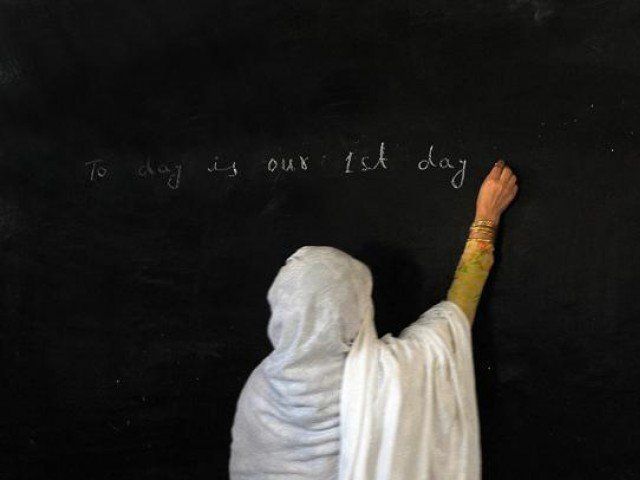
As government colleges in the province continue to grapple with the pandemic in its second wave, the Sindh college education department has decided to devolve the Karachi region into three separate administrative regions, based on the number of colleges in each.
Much to the distress of college faculty and staff, the department has forwarded a formal summary proposing the matter to the Sindh government for approval.
The summary recommends that the Karachi region should be abolished and replaced by three new regions. The first would comprise East and South districts, the second would entail Central and West districts, and Malir and Korangi districts would form the third region.
The colleges in the recently formed Keamari district would be merged with the second region comprising West and Central districts, proposes the summary. It further states that separate directors would be appointed for each of the three proposed regions.
As many as 145 of Sindh's 300 government colleges are located in Karachi. Faculty and staff members appointed in public colleges are uneasy with the proposed change as they fear this would affect transfers and postings.
A summary devised earlier had considered dividing the Karachi region on the basis of male and female colleges, whereby only a no-objection certificate (NOC) would be needed to transfer a teacher from one district to another, but the exchange from male to female colleges or vice versa would not be permitted.
Teachers and non-teaching staff are concerned that dividing the region on the basis of districts would mean that they would have to flit between government offices for transfers and postings from one college to another while living in their own city.
Speaking on the condition of anonymity, one college principal implied that the proposed divisions would only increase bureaucratic red-tape. He would also need the NOC of the district-based regional director to transfer from one region to another in the same city, he said.
Another college principal dubbed the department's decision to break Karachi region into three as irrational when there are more pressing matters at hand. But the issues that need immediate attention are being ignored, he opined.
Out of the 145 BEd government colleges in Karachi, 71 are male, 71 female, and three are co-education. Meanwhile, there are 36 government colleges in Karachi's Central district and 16 in West district, East and South districts have 29 and 23 colleges, respectively, while Korangi has 24 colleges and Malir district has 17 government colleges.
It has been at least 20 days since educational institutes closed campuses for the second time since the pandemic broke out, given the second wave of the coronavirus. But the college education department has not been able to commence online classes in Sindh.
Consequently, thousands of students in Sindh's government colleges are forced to either put their education on hold or turn to tuition centres. Among the government colleges, only two in Karachi - the Government College of Commerce and Economics and the Jamia Millia Government College Evening - have managed to resume online classes through improvised systems.
Most other educational institutes, including schools and colleges in Karachi, had already adopted online modes of teaching when campuses first closed in the spring.
Besides, the college education department was to reduce the syllabus for intermediate students' temporary examinations as has been done for ninth and 10th grade students, but this is yet to be done. No circular has been issued in this regard either.
Speaking to The Express Tribune, Sindh Colleges acting director-general Abdul Hameed Chanar confirmed the decision to divide the city's college regions.
The summary was prepared on the directives of college education secretary Baqar Abbas Naqvi, said Chanar, adding that as far as he knew, the colleges secretary had approved it.
As for the pending tasks of reducing the syllabi and introducing online education models, Chanar claimed this was not assigned to any other officers in the absence of the colleges additional secretary, who had been given the task but was on sick leave.
Published in The Express Tribune, December 16th, 2020.



1726215963-0/BeFunk_-(55)1726215963-0-165x106.webp)













1727268465-0/Untitled-design-(42)1727268465-0-270x192.webp)
COMMENTS
Comments are moderated and generally will be posted if they are on-topic and not abusive.
For more information, please see our Comments FAQ